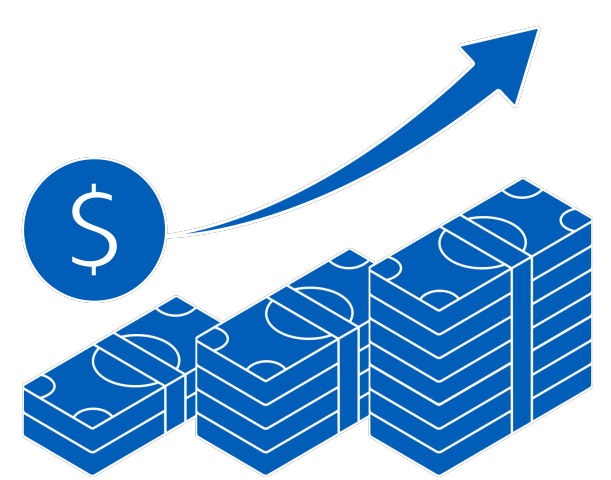You are now reading:
Prolonged US-China trade dispute will weigh down on Singapore's economy and currency
1 of 3



Starting or growing a business? Enjoy more than S$4,000 savings now with essential solutions. T&Cs apply.
Find out more
Your go-to sustainability guide. Get your customised report today by taking the quiz now.
Take the quizyou are in GROUP WHOLESALE BANKING


You are now reading:
Prolonged US-China trade dispute will weigh down on Singapore's economy and currency
In August, Singapore's Ministry of Trade and Industry cut its 2019 economic growth forecast for a second time, reducing it to zero to 1 per cent, down from 1.5 to 2.5 per cent. The currency may be next, with easing likely at the Monetary Authority of Singapore's (MAS) policy review in October, according to UOB's Senior Foreign Exchange Strategist Peter Chia.
Second-quarter growth almost stalled, expanding 0.1 per cent, the slowest in a decade. Quarter-on-quarter performance was even worse, shrinking 3.3 per cent, reversing the first quarter's 3.8 per cent growth and raising the spectre of a technical recession, defined as two consecutive quarters of negative growth.
Singapore is not alone, as issues such as the US-China trade dispute, Hong Kong unrest and Brexit weigh on the global economy. The US Federal Reserve was forced to abandon tightening and revert to cuts, while central banks in Asia have already eased. As the MAS uses the currency, not interest rates, to execute policy, attention will naturally fall on the Singapore dollar.
"The Singapore dollar is too strong," Chia told clients at a UOB FX event on August 27. He predicts it will weaken to a three-year low of $1.41 in the next six months -- his "most convincing call."

The Singapore dollar is too strong...(and we) predict it will weaken.
Singapore has one of the world's most open economies, with trade a multiple of GDP. It is vulnerable to the escalating US-China tariffs, with both nations among its largest trading partners. Singapore's electronics industry is deeply embedded in China's value chain, and with no end to the dispute in sight, exports to the mainland are suffering.
The rest of the world offers little respite: Japan and South Korea have their own trade fracas; Hong Kong is besieged by protests; Europe is entering another slowdown, where even Germany is deteriorating; Brexit provides a constant negative for the UK; in the US, the risk of a recession in the next 12 months has risen to 32 per cent, the highest since the 2007-08 Global Financial Crisis.
"The world is experiencing slow growth - and it's getting worse," UOB's Senior Economist Alvin Liew said at the event.

A slowing Chinese economy amid the trade conflict is likely to hit other export-dependent Asian countries such as South Korea and Singapore...
Singapore's exports tumbled 14.6 per cent in the second quarter from a year ago. In response, the government slashed full-year projections to negative 8 to 9 per cent, from zero to negative 2 per cent.
After initially defending its currency amid the trade tensions, China allowed the yuan to drop beyond the psychological 7.0 per dollar on 5 Aug. A weaker currency reduces the cost of China's goods to foreign buyers, mitigating tariffs. The US responded the following day, labelling China a currency manipulator for the first time since 1994.
A slowing Chinese economy amid the trade conflict is likely to hit other export-dependent Asian countries such as South Korea and Singapore, with the yuan a significant part of the MAS's currency basket. The Korean won is already Asia's worst performer this year.
"We're in a new weakening phase for China's currency," said Chia. He advised clients it was not too late to hedge against depreciation, with the cost of selling yuan in the forward market well below the 2016 high. UOB predicts a decline to 7.30 as a "high probability event."
China's influence over the yuan, and other Asian currencies, trumps the Fed's interest in the dollar. The Fed's July cut ended a four-year tightening cycle when rates rose in isolation, pushing up yields and the dollar. The opposite will not occur to the dollar as the Fed eases, with the notable exception of against the yen, Chia said. Japan's currency has a strong correlation with Treasury prices, and the 30-year bond just reached an all-time high.
The yen also enjoys long-held status as a safe haven. Recently, the Thai baht gained a similar reputation within ASEAN, becoming the best-performer in emerging markets in the past year.
As Japan has kept rates ultra-low for the past 20 years and was a pioneer in Quantitative Easing (asset purchases), it has little wriggle room. However, Asian central banks pre-empted the Fed with their own easing to resist currency appreciation and will continue to do so.
"Asian currencies will weaken alongside the yuan," Chia concluded.
To find out more and to get advice on FX from our experts, contact us now.
Disclaimer: This publication is issued to Accredited Investors only and is produced by a sales, structuring or trading desk of United Overseas Bank Limited ("UOB"), strictly for informational purposes only. It shall not be transmitted, disclosed, copied or relied upon by any person for whatever purpose, and is also not intended for distribution to, or use by, any person in any country where such distribution or use would be contrary to its laws or regulations. This publication is not an offer, recommendation, solicitation or advice to buy or sell any investment product/securities/instruments. Nothing in this publication constitutes accounting, legal, regulatory, tax, financial or other advice. Please consult your own professional advisors about the suitability of any investment product/securities/ instruments for your investment objectives, financial situation and particular needs.
The information contained in this publication is based on certain assumptions and analysis of publicly available information and reflects prevailing conditions as of the date of the publication. Any opinions, projections and other forward-looking statements regarding future events or performance of, including but not limited to, countries, markets or companies are not necessarily indicative of, and may differ from actual events or results. The views expressed within this publication are solely those of the author's and are independent of the actual trading positions of United Overseas Bank Limited, its subsidiaries, affiliates, directors, officers and employees ("UOB Group"). Views expressed reflect the author's judgment as at the date of this publication and are subject to change.
UOB Group may have positions or other interests in, and may effect transactions in the securities/instruments mentioned in the publication. UOB Group may have also issued other reports, publications or documents expressing views which are different from those stated in this publication. Although every reasonable care has been taken to ensure the accuracy, completeness and objectivity of the information contained in this publication, UOB Group expressly disclaims liability for any error or omission and makes no representation or warranty, whether express or implied, as to its accuracy, timeliness, completeness and objectivity and accept no responsibility or liability relating to any losses or damages howsoever suffered by any person arising from any reliance on the views expressed or information in this publication.

20 Nov 2025 • 5 mins read

12 Aug 2025 • 7 mins read

30 May 2025 • 3 mins read

29 Apr 2025 • 3 mins read